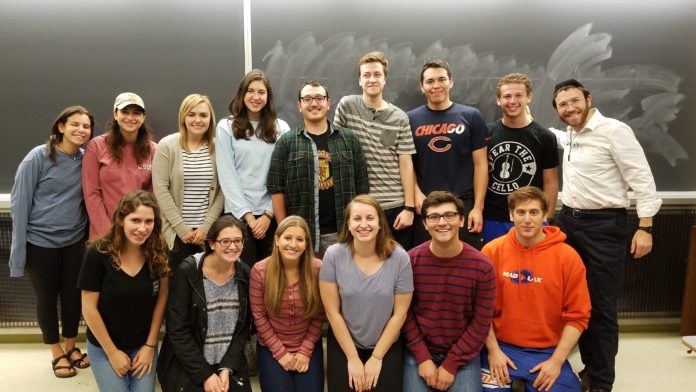We all experience and even engage in passive-aggressive behavior. And now, thanks to the way we use technology now, there’s a new way to be passive-aggressive: the passive-aggressive text message.
Here is an example:
You text your wife: “Can I bring Dave home for dinner tonight?” You get a text back, “Sure!” That’s sure – exclamation mark. You can reasonably assume that your wife is happy to have Dave over for dinner. However, if she texts “Sure.” (that’s Sure with a period), although that is almost the identical text, the sub text means “I thought the two of us were going out for dinner,” or “I don’t really care for Dave.”
Here is another example. You text your husband: “Can you pick up some milk on your way home?” If you get the response “Of course”, you can assume there will be a container of milk in the fridge. If you get the text “K” you’ll get the milk, but that’s the equivalent of him rolling his eyes at you. And if he texts “Yup” that translates as “Yes, I’ll get the milk, but why can’t you get the milk. I’ve been working all day, and you’ve had nine hours to get the milk.”
Now this all might appear amusing, and, perhaps, it is. I saw it on a clip of a Jimmy Kimmel show. Jimmy Kimmel is a late night TV comedian so he could have been making it up.
However, I was watching the clip in a classroom at the University of Illinois and 16 very attentive Jewish students then engaged in a spirited discussion about other forms of passive aggressive texting they have experienced. I was astounded! I had no idea. I’m going to be lot more careful when I text now.
The clip was selected by student leaders as one of the lessons in the Positive Speech Project, a brand-new program run by JET – Jewish Education Team to educate Jewish college students about the effects of negative speech.
The Positive Speech Project is the perfect program to engage students in today’s current culture of negativity and divisiveness. Young adults who spend a lot of time on social media are especially exposed to this negativity. Politics aside, the amount of harm caused by posting an embarrassing incident or airing out personal grievances in a public way is probably one of the reasons for the high rate of depression for college students.
Judaism places great emphasis on using our speech in a positive way. Speech is what makes humans unique. At the same time, as Jews become increasingly disconnected from Jewish ideas and the uniqueness of being Jewish, it is becoming increasingly difficult to reach these students. Add to this, the increasingly anti-Israel climate on campuses around the country, and Jewish students are reluctant to even identify themselves as Jewish. The Positive Speech Project aims to positively impact the way students communicate and to connect to a wide spectrum of students in a non-threatening way.
One other paradigm shift I have noticed in the young adult world is that young adults want to be more involved in their own future and the causes they are passionate about. They want to lead the process. They don’t want to be told what to do. Organizations like Moishe House and One Table have successfully tapped into this phenomenon. Hillel has been engaging in peer to peer programs for many years.
There is another organization now joining in, Olami. Olami is a worldwide network of outreach programs in 300 locations, funded by Jewish philanthropists alarmed at the assimilation rate. At the first Olami International Summit, which I attended in Sao Paulo, last November together with 1,000 students from around the world, dozens of groups of students presented ideas on how to engage new students, in the hope of winning a $50,000 prize. Overwhelmed by the creativity of the students, the Olami funders challenged all organizations to come up with more programs.
Following the U.S. presidential election, students on campus were angry and depressed. After speaking to students at U of I in Champaign, we came up with this idea to channel their energy keeping politics out of the discussion.
And so the Positive Speech Project, a peer-to-peer workshop for college students and young professionals that aims to change the culture of communication between young adults to a more positive one, was born.
Five student leaders were selected. They recruited another 16 students. I provided them with the core material, taken from “Positive Word Power for Teens” a fantastic book put out by the Chofetz Chaim Heritage Foundation with over 100 scenarios, resolutions to conflict and discussion questions. The student leaders met during the week to adapt the material for college students. In a move I did not expect but which fits in perfectly with the student led idea of the program, the student leaders decided to use movie and TV clips for the lessons. I would never have thought of the Jimmy Kimmel clip on passive aggressive texting. Another clip from “Willy Wonka” highlighted the lesson of not blaming others.
The first program just ended this past Sunday. Student leaders had great success in the discussion groups, and students are already feeling the impact of their daily interactions with other students.
As one student wrote in his application:
“I was in Israel this past summer, and the importance behind speech was brought up to me. I thought it was such an interesting idea, and really wanted to develop it further. This class allows me to do that which I’m really excited about. It’ll develop me in my personal life, professional career, and religious ties as well. If I have a strong understanding of this concept, I will have the ability to share it forward to other Jews and non-Jews. This is bigger than a lot of stuff I learned in school.”
An appealing website, www.positivespeechproject.com has been designed and launched to manage the project.
The goal is to spread the Positive Speech Project nationally and internationally.
If you are interested in getting involved, email Rabbi Kahn at [email protected]







